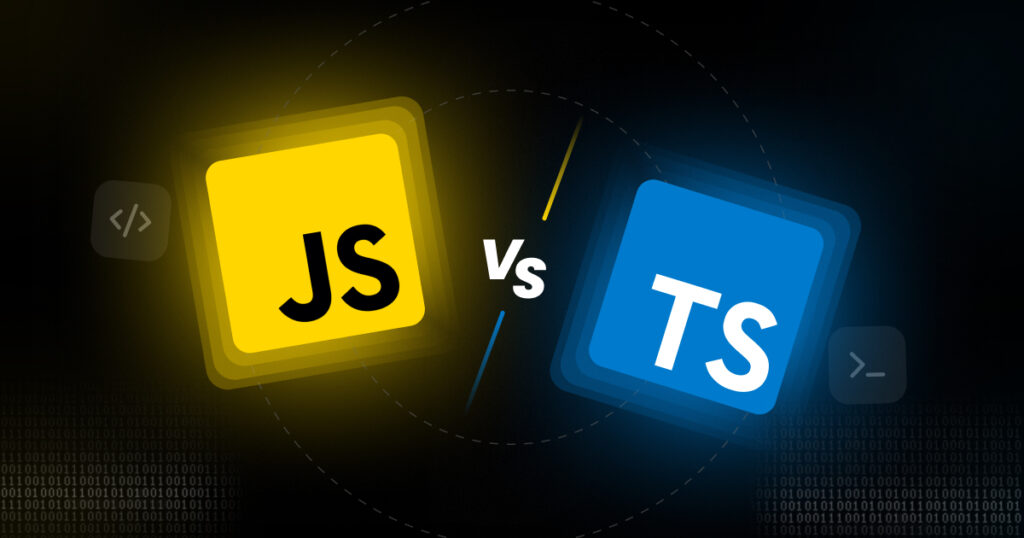Aug. 4, 2025
4 min read
Is TypeScript still worth the learning curve in 2025? Or is modern JavaScript finally good enough on its own? This post explores the trade-offs, project types, and team setups that favour one over the other, plus where they work best together.

If you’ve ever asked, “Should I just stick to JavaScript or take the leap into TypeScript?”, welcome to the club.
It’s 2025, and the debate is still alive and well. JavaScript has come a long way, modern syntax, better tooling, and frameworks that handle a lot of the complexity for you. But TypeScript? It’s pretty much everywhere. From startups to huge enterprise teams, TypeScript has become the default for many.
So, which one is better?
Short answer: it depends.
Longer answer: Let’s break it down.
JavaScript in 2025: Still Going Strong
JavaScript is still the foundation of the web, and it’s more capable than ever.
Why JavaScript Still Works:
- No setup required: Open a
.jsfile, write code, and run it. - Faster prototyping: Great for quick projects, proof-of-concepts, or when you’re still figuring things out.
- Better browser support: Modern JS is widely supported and standardized.
- Lighter projects: Fewer dependencies, no compilation step, and just enough flexibility.
But here’s where it stings:
- No type checking = more runtime errors.
- You rely on test coverage and linters to catch bugs.
- Refactoring can feel like walking through a minefield.
- On large codebases, things can spiral into spaghetti fast.
Best for:
- Small projects & quick scripts
- Solo developers who prefer flexibility
- Projects where speed > strictness
TypeScript in 2025: Still Worth the Hype?
TypeScript’s not just a trend anymore. It’s baked in to most major projects now.
Why TypeScript Wins:
- Type safety: Catch bugs before you even run the code.
- Better DX (Developer Experience): Autocomplete, jump-to-definition, instant feedback.
- Refactoring made easy: You can rename a variable in confidence.
- Great for teams: Everyone sees the shape of objects, function expectations, and avoids “undefined is not a function” pain.
But let’s be real:
- There’s a learning curve. Especially if you’re not from a typed language background.
- It needs setup. tsconfig, build steps, and extra tooling.
- Sometimes it feels verbose. Ever written
Record<string, string>just to type an object? Exactly.
Best for:
- Large projects with multiple developers
- Long-term maintainable codebases
- Teams that value predictability
So… Which One Should You Use?
If You’re Just Starting Out
Go with JavaScript, especially if you’re still learning how code works. You can always add TypeScript later. In fact, TypeScript is just JavaScript with extra features, so everything you learn transfers.
Pro tip: Try using JSDoc comments in JS to get some TypeScript-like benefits without going full TS.
If You’re Building a Solo Project or MVP
Use JavaScript if speed is your top priority and you’re not planning to maintain it for years.
But if your MVP might turn into a real thing later, TypeScript is worth considering early on. Adding TS to a mature JS project can be… not fun.
If You’re Working with a Team
Use TypeScript. Period.
It makes collaboration smoother, avoids “but I thought this was a string” conversations, and helps you spot issues before they go live. In 2025, it’s the default for many teams for a reason.
If You’re Maintaining a Big Codebase
If you’re deep into a multi-year project with dozens of contributors, and you’re still using plain JavaScript, may the odds be in your favour. TypeScript can be your safety net for avoiding regression bugs and shipping with confidence.
When to Use Both Together
Wait! Can you use both? Absolutely! Many projects in 2025 mix them:
- Gradual adoption – Start with JS, add TypeScript later.
- Type-checking only where needed – Use JSDoc comments (
/** @type {…} */) for partial safety. - Modern JS with TS support – Tools like ESLint + TypeScript give you some benefits without full migration.
Final Thoughts
JavaScript isn’t going anywhere. And TypeScript? It’s not just a trend, it’s here to stay.
Think of it like this:
- JavaScript is a fast, flexible canvas.
- TypeScript is the canvas with gridlines and a ruler, great for precision.
So, whether you’re team JS or team TS, what matters is picking the right tool for your context. You can always evolve your setup as your project (or your confidence) grows.
What’s your experience been like with TypeScript or JavaScript in 2025? Drop a comment on our discord channel, I’d love to hear your take.